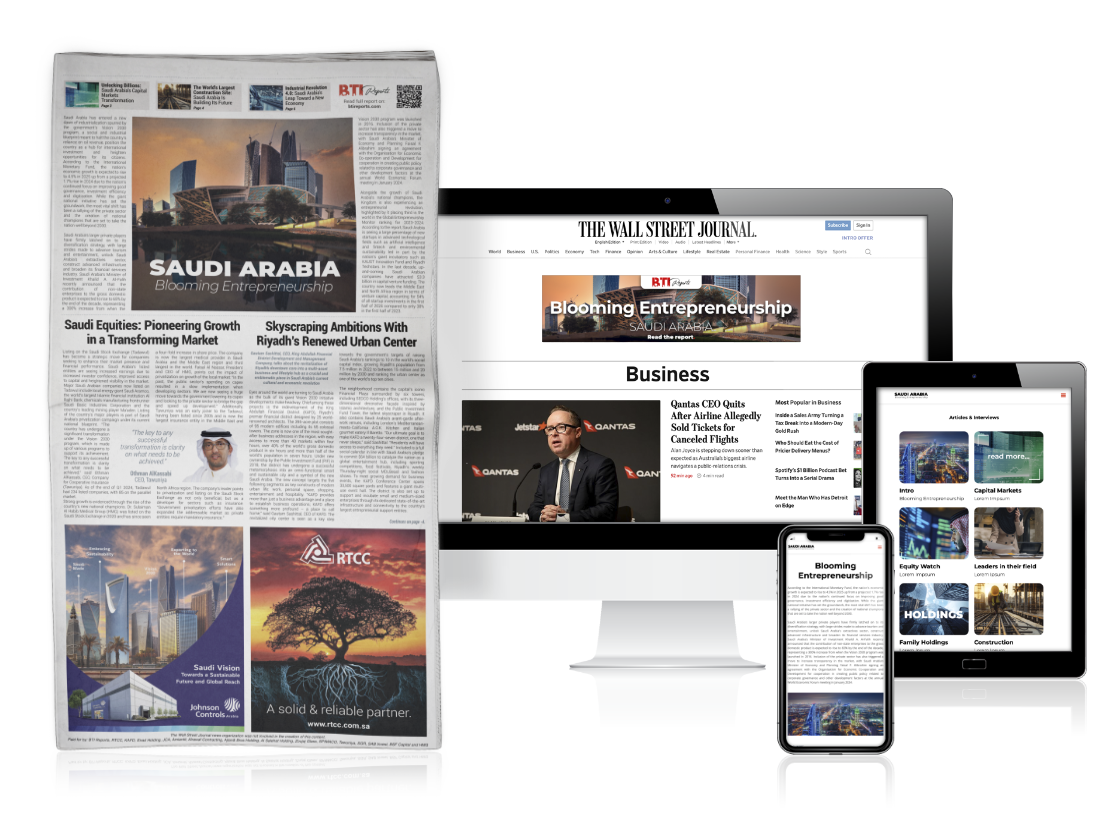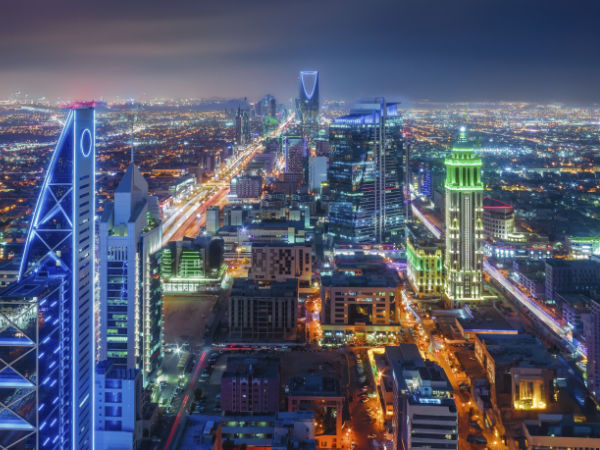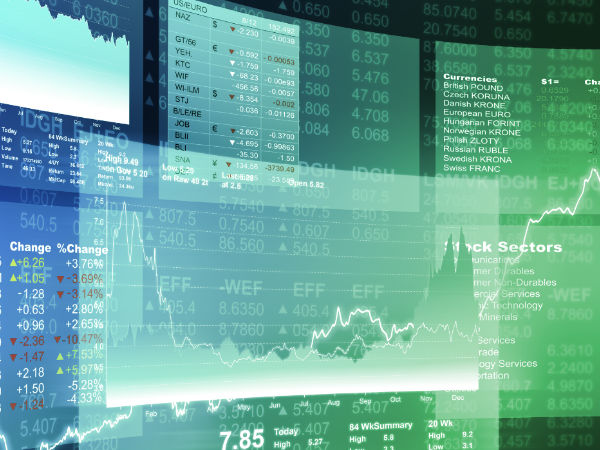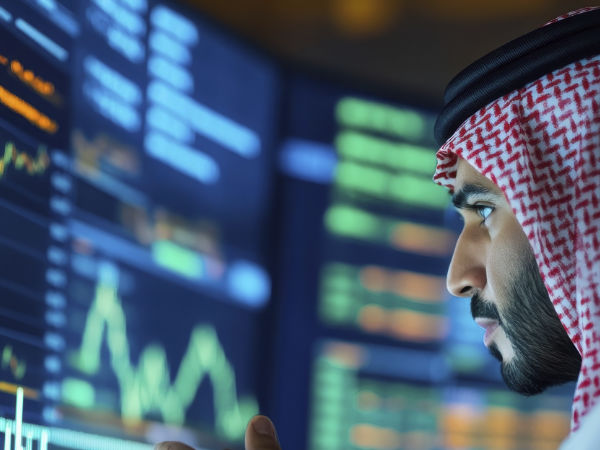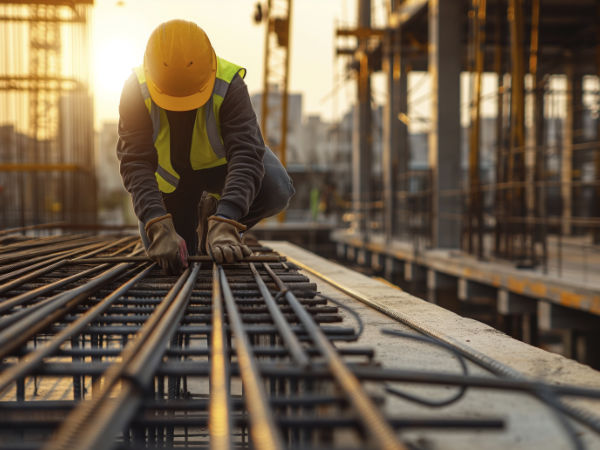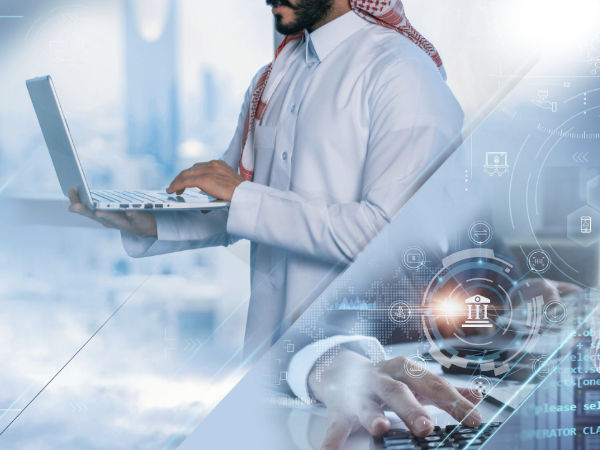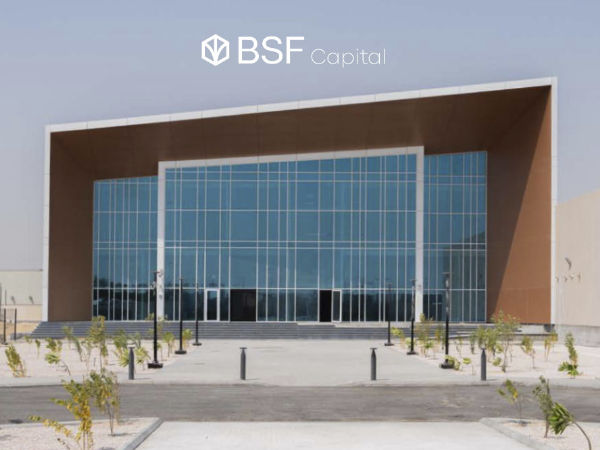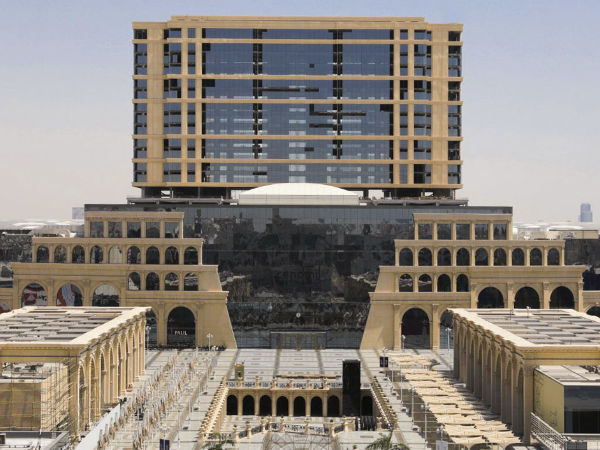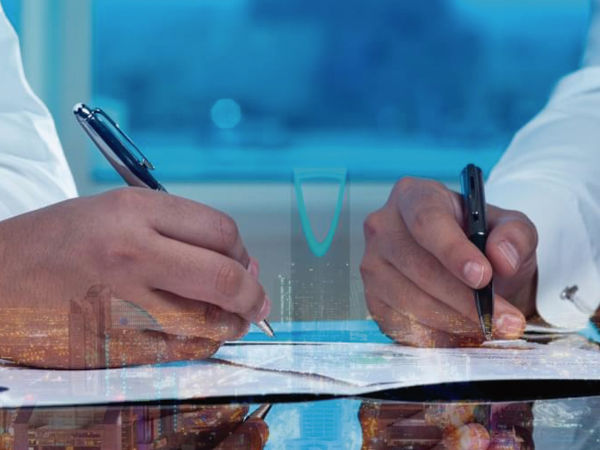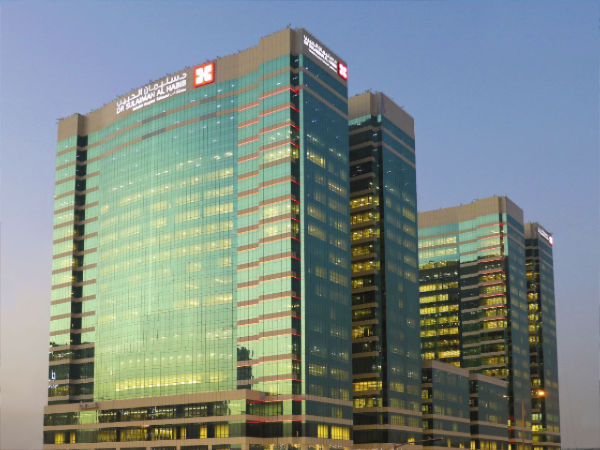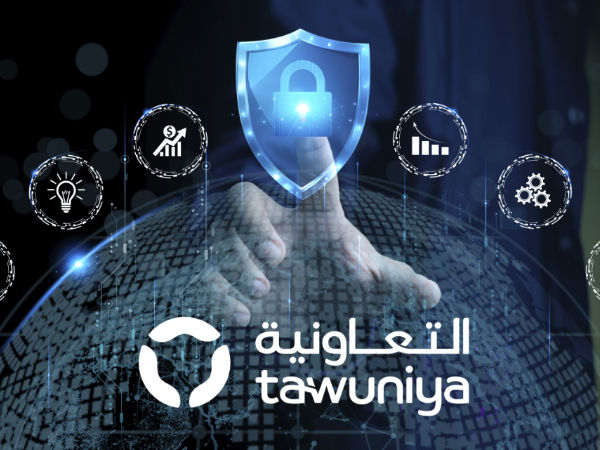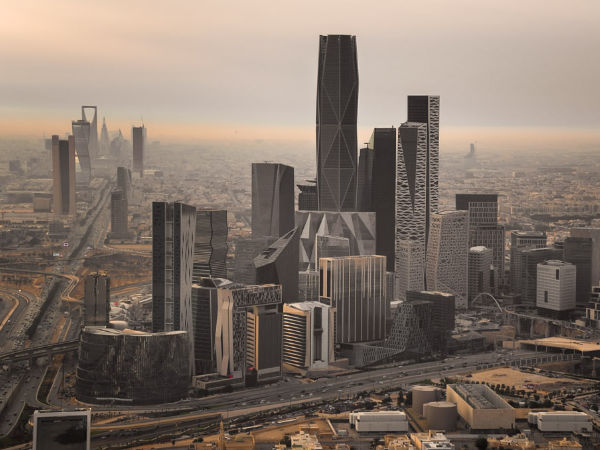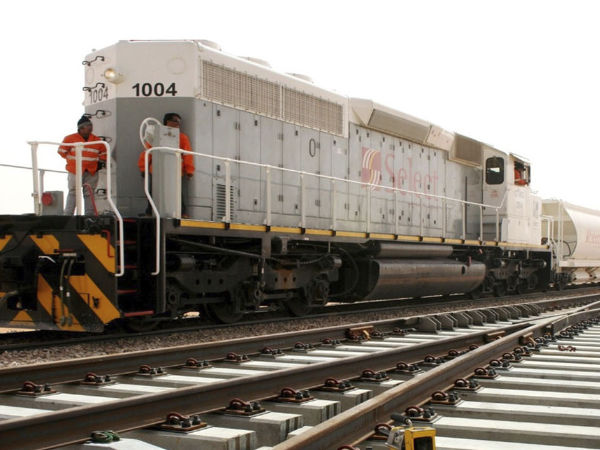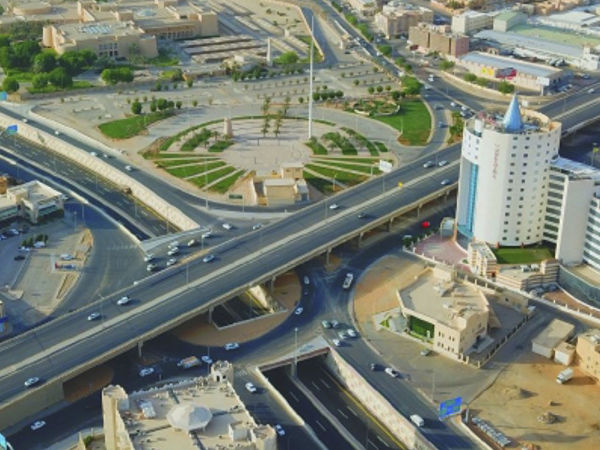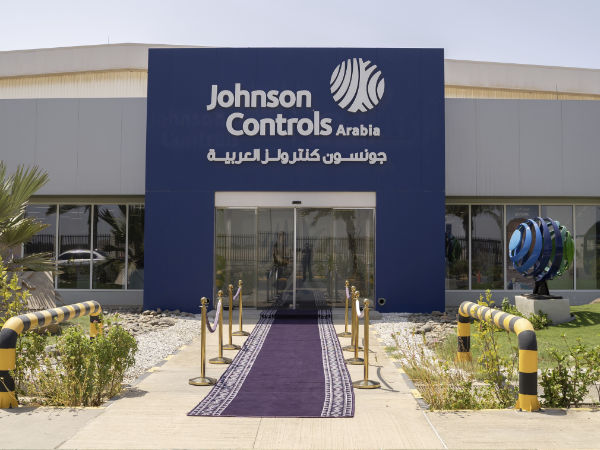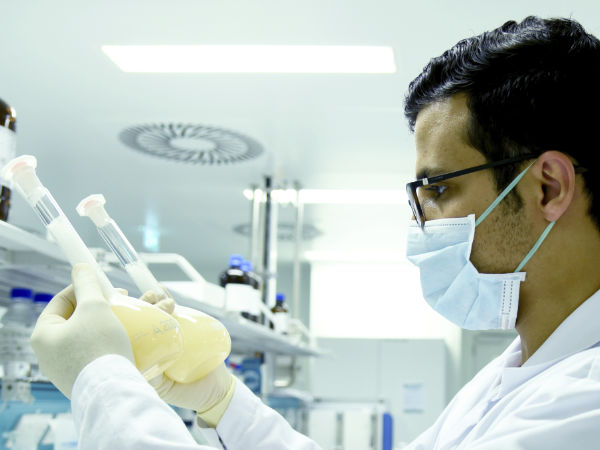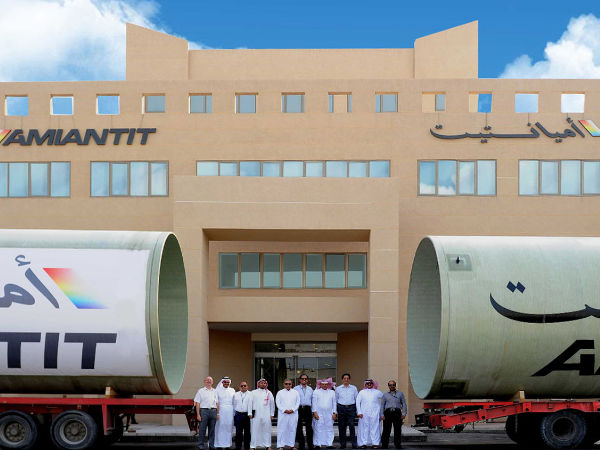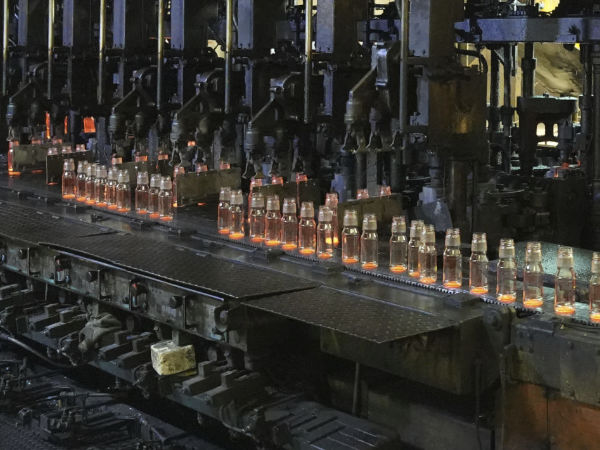SAUDI ARABIA
Blooming Entrepreneurship
overview
Saudi Arabia
Saudi Arabia has entered a new dawn of industrialization spurred by the government’s Vision 2030 program, a social and industrial blueprint meant to halt the country’s reliance on oil revenue, position the country as a hub for international investment and heighten opportunities for its citizens.
According to the International Monetary Fund, the nation’s economic growth is expected to rise to 4.5% in 2025 up from a projected 1.7% rise in 2024 due to the nation’s continued focus on improving good governance, investment efficiency and digitization. While the giant national initiative has set the groundwork, the most vital shift has been a rallying of the private sector and the creation of national champions that are set to take the nation well beyond 2030.
Articles & Interviews
Intro
Blooming Entrepreneurship
Capital Markets
Unlocking Billions: Saudi Arabia's Capital Markets Transformation
Equity Watch
Saudi Equities: Pioneering Growth in a Transforming Market
Leaders in their field
Shaping Saudi's Future
Family Holdings
Leading Diversification
Construction
The World's Largest Construction Site
Industry
Industrial Revolution 4.0: The Leap Toward a New Economy
Saudi Gold
Saudi Gold Refinery Company
Healthcare
Health care is going native
Interviews
Corporate Profiles
SAB Invest
Navigating Growth: SAB Invest’s Strategic Moves
BSF Capital
The Power and Potential of Data Centers in Saudi Arabia: A Success Story in Progress
AlSalehat Holding
Saudi Arabia leans on legacy to lead its future
Eirad Holding
Redefining diversification through collaboration
Dr. Sulaiman HMG
Pioneering Healthcare Excellence in Alignment with Vision 2030
Tawuniya Company
Visionary Growth Strategy
KAFD
Skyscraping ambitions with Riyadh’s renewed urban center
RTCC
Building the blocks of Saudi Arabia’s new future
AlRawaf Contracting
More than a contractor: AlRawaf Contracting, a partner in all endeavors
Johnson Control Arabia
Saudi Arabia’s new era of manufacturing: smart, digital and green
SPIMACO
Revolutionizing Saudi Arabia's Biotech Landscape
Amiantit Company
Championing Saudi Arabia’s mission for blue prosperity
Zoujaj Glass
Leading the circular economy
Blooming Entrepreneurship
Saudi Arabia’s larger private players have firmly latched on to its diversification strategy, with large strides made to advance tourism and entertainment, unlock Saudi Arabia’s extractives sector, construct advanced infrastructure and broaden its financial services industry. Saudi Arabia’s Minister of Investment Khalid A. Al-Falih recently announced that the contribution of non-state enterprises to the gross domestic product is expected to rise to 65% by the end of the decade, representing a 300% increase from when the Vision 2030 program was launched in 2016. Inclusion of the private sector has also triggered a move to increase transparency in the market, with Saudi Arabia’s Minister of Economy and Planning Faisal F. Alibrahim signing an agreement with the Organisation for Economic Co-operation and Development for cooperation in creating public policy related to corporate governance and other development factors at the annual World Economic Forum meeting in January 2024.
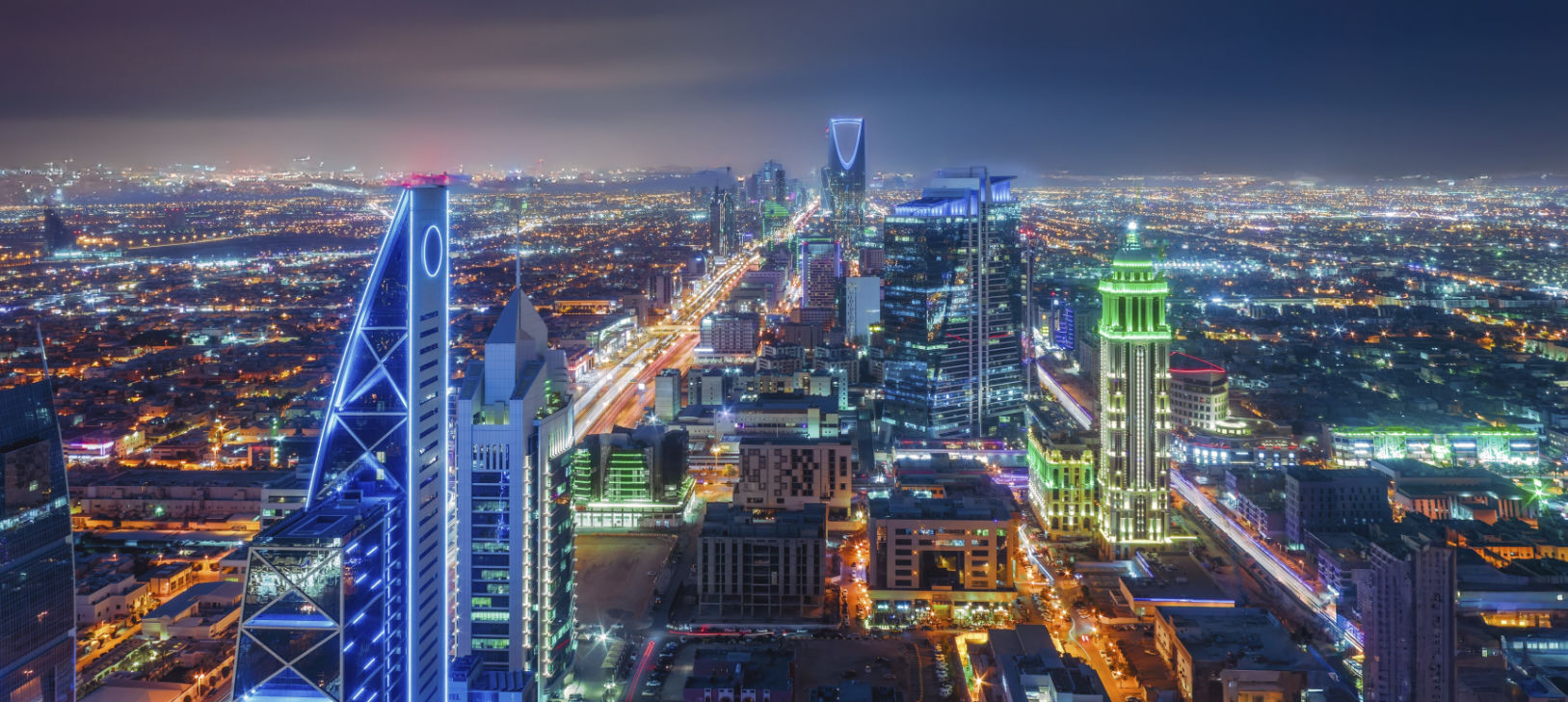
-
read more...
Alongside the growth of Saudi Arabia’s national champions, the Kingdom is also experiencing an entrepreneurial revolution, highlighted by it placing third in the world in the Global Entrepreneurship Monitor ranking for 2023-2024. According to the report, Saudi Arabia is seeing a large percentage of new startups in advanced technological fields such as artificial intelligence and fintech and environmental sustainability led in part by the nation’s giant incubators such as KAUST Innovation Fund and Riyadh Techstars. In the last decade, up-and-coming Saudi Arabian companies have attracted $3.3 billion in capital venture funding.
The country now leads the Middle East and North Africa region in terms of venture capital, accounting for 54% of all startup investments in the first half of 2024 compared to only 38% in the first half of 2023.
Capital Markets
Unlocking Billions: Saudi Arabia's Capital Markets Transformation
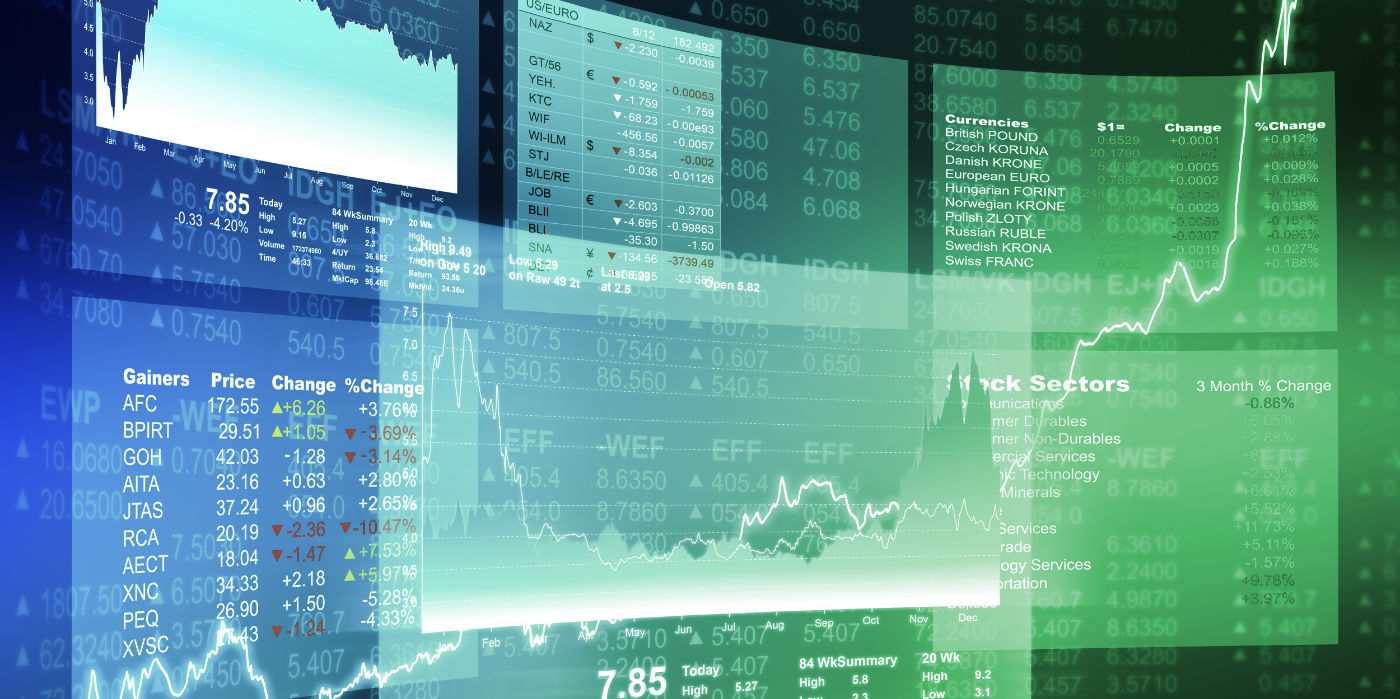
Saudi Arabia's capital market is undergoing rapid transformation, fueled by ambitious reforms and an increasing demand for foreign investment. In 2021, the country unveiled its National Investment Strategy, aiming to inject $3.3 trillion into its economy by 2030, which includes using the Saudi Stock Exchange (Tadawul) as a key contributor. Muhammad Elkuwaiz, Chairman of the Capital Market Authority (CMA), points to the evolution of the Saudi capital market as a lynchpin in transforming the country’s financial services sector: “Historically, the […] sector has been profoundly underutilized and underappreciated mainly because it was not viewed as an economic sector but rather as a public utility.” The government now plans to leverage the stock exchange as a central component of its Financial Sector Development Program, which aims to reach over $935 billion in banking assets and achieve an over 80% increase in the market value of Tadawul as a percentage of the nation’s GDP — excluding the impact of Saudi Aramco — by 2030. Investment bank Goldman Sachs anticipates that approximately $1 trillion of anticipated investments could be allocated between 2024 and 2030 to develop sectors such as clean technology, metals and mining, and transport and logistics. “The positive sentiment around the Saudi economy, government reforms and the diversification of the economy under Vision 2030 along with a focus on sustainable public spending and infrastructure development collectively contribute to a favorable investment environment,” said Salam AlKhunaizi, CEO of BSF Capital. “It is possible that these trends will continue for Saudi Arabia in the medium and long term.”
“Historically, the sector has been profoundly underutilized and underappreciated mainly because it was not viewed as an economic sector but rather as a public utility.”
H.E. Dr. Muhammad Elkuwaiz
Chairman of CMA
-
read more...
Tadawul was established in 2007 as the exclusive entity authorized to function as the securities exchange in Saudi Arabia. This development was part of a broader initiative to modernize the nation’s financial sector, which also included the launch of the CMA in 2003 to regulate and oversee the market. The stock exchange has grown significantly since joining international indices such as the Financial Times Stock Exchange Index and MSCI Emerging Markets Index in 2019, advancing from the 11th to the sixth largest among the 24 nations in the MSCI Emerging Markets Investable Market Index. Salam AlKhunaizi, CEO of BSF Capital, points to technological advances made by the CMA: “The introduction of advanced trading systems and platforms has improved the efficiency and accessibility of the Saudi market and made it easier for investors to trade and manage their portfolios.” The CMA is currently working on enhancing the role of the stock market and equity rights, developing the sukuk and debt instrument market, enabling growth of the asset management industry, enhancing capital market services and enhancing governance and transparency of listed companies. “Recent developments such as the launch of a parallel and derivatives market have further strengthened the capital market,” said Abdullah Alshwer, CEO of local investment bank Riyad Capital, which managed $24.8 billion in assets in 2023. “These reforms align with Vision 2030’s goal to make Saudi Arabia one of the top five capital markets globally.”
“The introduction of advanced trading systems and platforms has improved the efficiency and accessibility of the Saudi market.”
SalamAlKhunaizi
CEO of BSF CapitalIn the last several years, the Saudi Arabian market has been marked with a significant increase in initial public offerings (IPOs), including the IPO of local energy giant Saudi Aramco in 2019, the world’s largest of all time. In 2023, the market saw an increase in IPOs and direct listings, with 43 companies joining the market. In Q2 2024, three out of the top five initial public offerings in the Gulf Cooperation Council region were done on Tadawul, including $764 million raised by local healthcare services provider Dr. Soliman Abdel Kader Fakeeh Hospital Company and $224 million raised by insurance and financial services technology entity Rasan Information Technology Company. Ali Almansour, managing director and CEO of the local banking investment powerhouse SAB Invest, sees the privatization of companies and an increase in listings as key in attracting investment: “The opening of the market to more investor segments and the increase in IPOs have brought new liquidity and extended the universe of investable securities.”
“The opening of the market to more investor segments and the increase in IPOs have brought new liquidity and extended the universe of investable securities.”
Ali Almansour
CEO of SAB InvestSaudi Arabia’s Vision 2030 initiative aims to boost annual foreign direct investment inflows to $100 billion and elevate foreign direct investment to 5.7% of GDP by 2030. A portion of this target is anticipated to be achieved through enhanced international participation in the nation’s stock exchange, which has increased more than fourfold since 2018. In Q3 2023, foreign ownership in the local capital market reached $112 billion, up from $19.2 billion at the end of 2016. In August 2024, the Kingdom introduced its New Investment Law designed to level the playing field for both Saudi and non-Saudi investors. This new law replaces the existing Foreign Investment Law and includes key changes such as eliminating the requirement for foreign investment licenses in favor of an investment registration system managed by the Ministry of Investment. The legislation also enhances investor rights by providing safeguards against expropriation, protecting intellectual property and facilitating dispute resolution for all investors, regardless of nationality. These changes are set to be implemented in February 2025. “Comparative advantages of investing in Saudi equities include an improved regulatory environment that aims to reach global standards, friendly tax rates, availability of capital, a large number of expected IPOs and privatization of public sectors,” said Mazin F. Baghdadi, CEO and managing director of leading asset manager and financial services provider Alinma Investment. SAB Invest’s CEO points to key reasons for the attractiveness of Saudi Arabia for foreign investors: “These include growth in spending under the Vision 2030 initiatives, the development of new sectors, new IPO activities, regulatory changes and market openings by the regulator.” According to Goldman Sachs, foreign involvement is expected to rise to 3.4% by of the Saudi Arabian gross domestic product by 2025 and 5.7% by 2030.
Equity Watch
Saudi Equities: Pioneering Growth in a Transforming Market
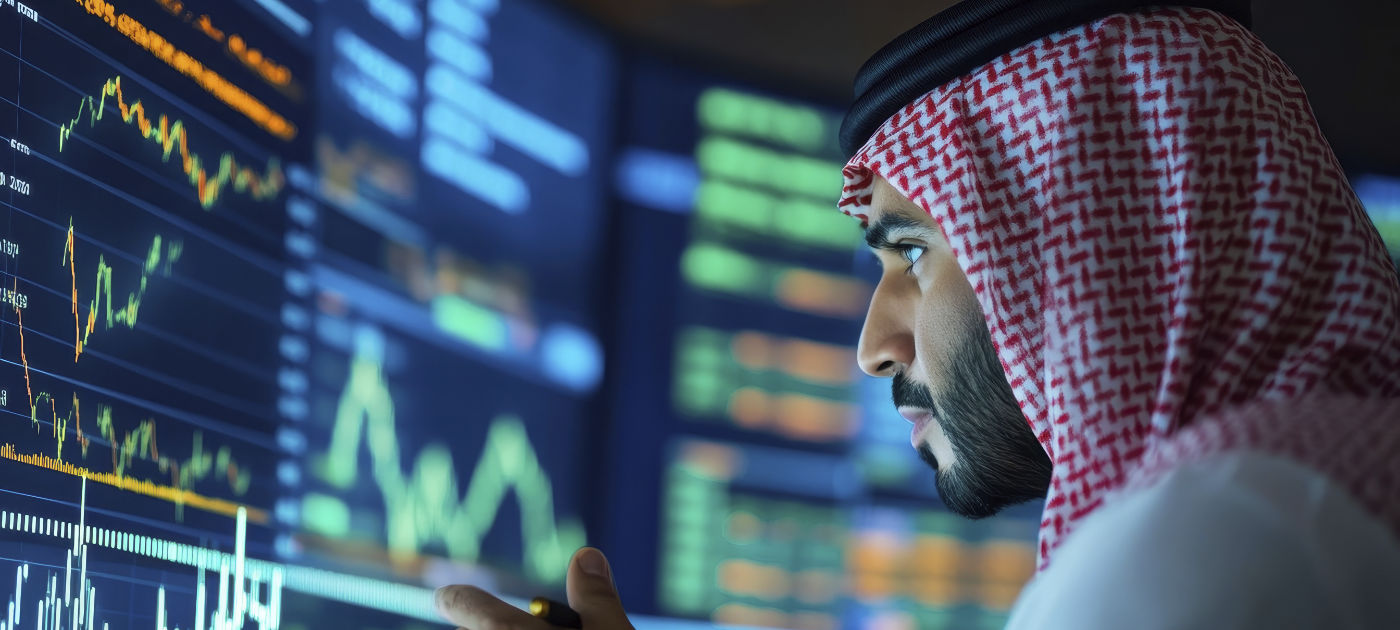
Listing on the Saudi Stock Exchange (Tadawul) has become a strategic move for companies seeking to enhance their market presence and financial performance. Saudi Arabia’s listed entities are seeing increased earnings due to increased investor confidence, improved access to capital and heightened visibility in the market. Major Saudi Arabian companies now listed on Tadawul include local energy giant Saudi Aramco, the world’s largest Islamic financial institution Al Rajhi Bank, chemicals manufacturing frontrunner Saudi Basic Industries Corporation and the country’s leading mining player Ma’aden. Listing of the country’s major players is part of Saudi Arabia’s privatization campaign under its current national blueprint. “The country has undergone a significant transformation under the Vision 2030 program, which is made up of various programs to support its achievement. The key to any successful transformation is clarity on what needs to be achieved,” said Othman AlKassabi, CEO, Company for Cooperative Insurance (Tawuniya). As of the end of Q1 2024, Tadawul had 234 listed companies, with 85 on the parallel market.
-
read more...
“The key to any successful transformation is clarity on what needs to be achieved.”
Othman AlKassabi
CEO of TawuniyaStrong growth is evidenced through the growth of the country’s new national champions. Dr. Sulaiman Al Habib Group (HMG) was listed on the Saudi Stock Exchange in 2020 and has since seen a four-fold increase in share price. The company is now the largest medical provider in Saudi Arabia and the Middle East region and third largest in the world. Faisal Al Nassar, President and CEO of Dr. HMG, points out the impact of privatization on growth of the local market: “In the past, the public sector’s spending on capex resulted in a slow implementation when developing sectors. We are now seeing a huge move towards the government lowering its capex and looking to the private sector to bridge the gap and speed up development.” Additionally, Tawuniya was an early joiner to the Tadawul, having been listed since 2005 and is now the largest insurance entity in the Middle East and North Africa region. The company’s leader points to privatization and listing on the Saudi Stock Exchange as not only beneficial, but as a developer for sectors such as insurance: “Government privatization efforts have also expanded the addressable market as private entities require mandatory insurance.”
Leaders in their Field
Shaping Saudi's Future
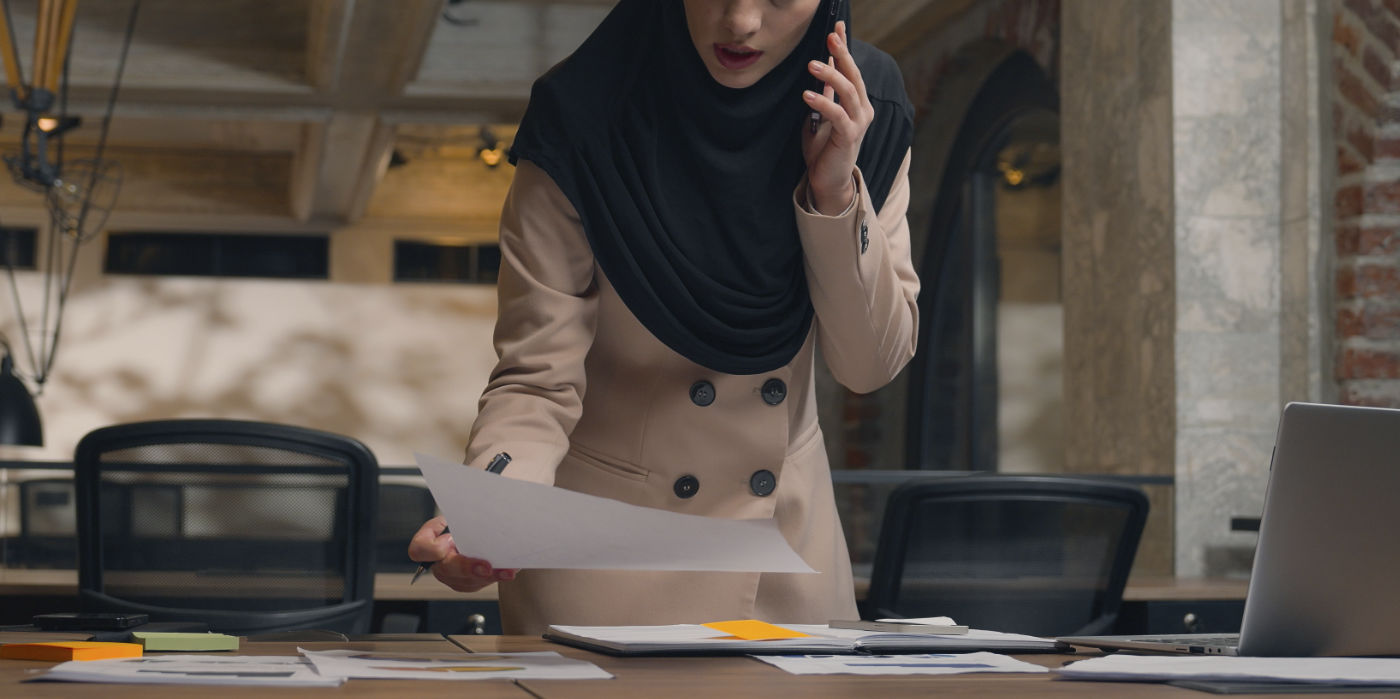
Saudi Arabia’s latest economic vision is now being led by female leaders who are breaking down barriers and putting their own version of what their nation can become into reality
One of the largest forces behind Saudi Arabia’s current success is an early focus on driving diversity and inclusivity under the Vision 2030 initiative, not only in looking towards new ideas and sectors but in leveling the playing field for gender equality and participation in the market. The country is now surpassing other markets around the world in inclusion of women in the workplace. In 2021, Saudi Arabia achieved the third highest global percentage of women entering entrepreneurial roles and had well outstripped the average participation of European women in tech jobs of 17% with a rate of 28%. “One of Vision 2030’s targets is to have 30% of the workforce being women, and I believe we are at 47% today,” said Amal Dhokan, one of Saudi Arabia’s most well-known business figures and current partner for 500 Global. “The sense of pride in what we have achieved is contagious.” Countless female trailblazers are now making a name for themselves in all walks of business, from investment, art, sports and entrepreneurialism.
“I am honored to have left a legacy of inspiration, which has been inwardly inspiring.”
Amal Dhoken
General Partner of 500 Global MENA
-
read more...
One such leader is Amal Dhoken, who began her career as a children’s teacher and found her calling as one of the earliest drivers of entrepreneurialism during her time at King Abdullah University of Science and Technology where she was a key developer of the school’s initial startup platforms. She sees her initial decade-long work in education as being a key building block for her later successes in promoting new businesses: “Entrepreneurs are no different than students in that they are curious and want to break rules. They identify, observe and want to be involved in the creative process. They want to make a mess and understand how to rebuild things together.” In 2021, Dhokan was announced as partner of 500 Global, a venture capitalist entity that manages around $2.4 billion in assets and is focused on driving tech-related startups. At the time, she was the first female to fulfill a general partner role within Saudi Arabia. “I have had people call me the grandma of entrepreneurship in Saudi Arabia as one of the first women that ever spoke publicly about it in the early days,” said Dhoken. “I am honored to have left a legacy of inspiration, which has been inwardly inspiring.”
“I aim to show the global audience who the Saudi women are today, the sectors we are leading in, our global achievements and what lies beyond.”
Mashael Al Obaidan
International Pro Rally DriverAnother recognized leader is the famous Mashael Al Obaidan, one of the nation’s top female pro rally drivers and the first woman to obtain a rally license in Saudi Arabia. Al Obaidan made news by her initial participation in the Dakar Rally in 2022, coming in seventeenth place in the four-wheel side-by-side category. “I felt proud to represent my country in the toughest rally in the world, knowing that the percentage of women participating does not exceed 5%,” she said. “Around 50% of competitors drop in the first week.” Sports is a major focus in the government’s Vision 2030 initiative, under which the Dakar Rally was brought to the nation in 2020 and the popular Saudi Arabian Grand Prix was created in 2021. “The sport sector is one of the strongest booming sectors in Saudi Arabia; it is engraved in Vision 2030,” said Al Obaidan. “Saudi’s major investments in motorsports shows how keen we are on developing it globally.” The athlete also participates in sports beyond rally driving such as scuba diving, free diving and most recently being a pilot at Saudi Arabia’s first-ever E1 boat race in February 2024.
As Saudi Arabia expands its focus beyond business towards updating its cultural lens, other prominent female front-runners are leading the charge in reframing Saudi Arabia as a center for the arts. Raneem Farsi established the art consultancy Raneem Farsi Art Advisory – now AR Art Advisory – in 2011 after returning from her master’s degree at Sotheby’s Institute of Art. The artist won high acclaim as co-curator of the first Desert X project at the scenic city of Al’Ula in 2020, a giant open-air art festival featuring 14 artists mixing landscape and art. She also curated the public program for the first edition of the high-profile Diriyah Contemporary Art Biennale in 2021. The artist and businesswoman is an avid promoter of other artists, including holding a seat on the board of the Saudi Art Council in Jeddah. Farsi underlines the potential for the local art world in building Saudi Arabia’s economy: “From a purely economic angle, the number of opportunities for professions within the sector is enormous, including logistics, insurance, installations, productions and scenography. Growth of the art sector will help to diversify the economy while enhancing the development of a more creative economy.”
“Engaging with the public and allowing accessibility to everyone is a priority.”
Raneem Farsi
Art Curator & Founder of AR ArtAll three women are using their leadership roles to inspire the next generation of female business leaders. Dhoken has taken her role as a torchbearer for female participation seriously both personally and in her work. “As women we often build limitations. It is important that we step outside our limitations and take what we can instead of waiting for it to be offered,” she said. She now works on building positive connections for women in angel investing and business through online lecture series and through her work at 500 Global. As a celebrated sports figure, Al Obaidan is also active in showcasing the powerful participation of women in Saudi Arabia, including speaking at the Future Investment Initiative in 2023. “I aim to show the global audience who the Saudi women are today, the sectors we are leading in, our global achievements and what lies beyond. Most importantly, I want to talk to the younger population to ignite their passions and push them to persue their dreams.” For her part, Farsi sees her work in the art world helping others express themselves as pushing boundaries. “Art is a soft power in the sense that it is the biggest driver of unity,” she said. “Engaging with the public and allowing accessibility to everyone is a priority.”
Family Holdings
Leading Diversification
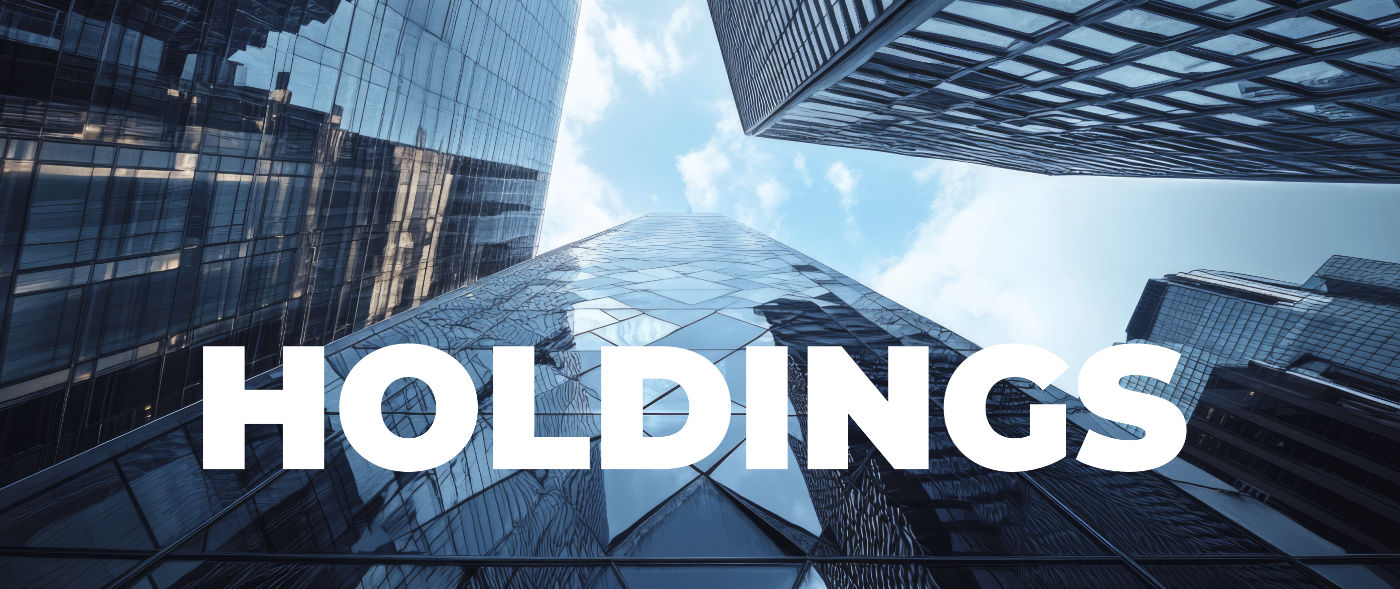
“We are part of the decision-making process regarding our direction and proposed investments around the Kingdom.”
Anas Saleh Serafi
CEO of AlSalehat Holding
Family-owned companies are a crucial part of Saudi Arabia’s economy, driving growth, jobs, and innovation while supporting the Vision 2030 initiative. These businesses account for about 63% of the country’s private sector, mainly based in Riyadh, Makkah, and the Eastern Province. In 2024, Saudi family businesses represented the largest share on Forbes Middle East’s Top 100 Arab Family Businesses list, making up 34% of the total. Anas Saleh Serafi, CEO of AlSalehat Holding, points to his family and other similar businesses as leading Saudi Arabia’s current economic transformation: “We are part of the decision-making process regarding our direction and proposed investments around the Kingdom.” The leader views the Vision 2030 initiative — launched in 2016 to open up the Saudi economy — as a key driver of private sector growth. By 2030, the private sector is expected to contribute 65% of the country’s gross domestic product. “Vision 2030 is not just a dream but a real plan that is being realized at a much faster speed than anticipated,” he said.
-
read more...
Saudi Arabia’s family-owned companies are leading the private sector’s push for diversification under the Vision 2030 initiative. The International Monetary Fund expects Saudi Arabia’s non-oil sector to grow by about 3.5% in 2024, with further acceleration anticipated in 2025. One of the key players driving diversification is Ajlan & Bros Holding Company, one of the country’s largest diversified corporations. Starting in textiles, the company led by Vice Chairman Sheikh Mohammed Alajlan has expanded into real estate, financial services, technology and defense. It now plans to invest $13 billion in Saudi Arabia’s emerging mining sector. Alajlan points to the Vision 2030 program as the impetus for the momentum of the country’s larger holding companies: “When the Vision 2030 initiative was launched in 2016, we understood this was the future.” Eirad Holding, another major family-owned company, has swiftly diversified from its roots in logistics and security into emerging sectors such as telecommunications, tourism and manufacturing. “There are many key areas of investment currently available, including tourism and entertainment, healthcare and food and beverages,” said Fahd Salman Al Saud, executive chairman of Eirad Holding. “Alternative energy sources also represent huge investment opportunities, such as solar, wind and water.”
Saudi Arabia’s push for economic diversification has prompted major local holding companies to look beyond domestic borders, with family businesses increasingly embracing international partnerships as a strategic path to infuse the country with new knowledge, technology and investment. “In the past decades, our investments have been concentrated locally,” said the CEO of AlSalehat Holding. “However, we are now looking at expanding our investments abroad.” The company has signed strategic partnerships with major US players such as John Hopkins Hospital to set up a specialized hospital and major hospitality brands such as Crowne Plaza and Hyatt Regency to open hotels at some of the country’s largest malls and mix-use centers. The CEO sees his company a top partner for incoming investors: “Our ability to navigate Saudi Arabia's regulatory and cultural landscape provides a competitive edge in fostering partnerships with top global brands looking to expand in the region.” Other companies are now leveraging their long-standing partnerships with international markets, such as Ajlan & Bros Holding Company. “The United States and Saudi Arabia have signed a trade investment framework agreement and Ajlan & Bros Holding Company has been investing in the US real estate and equities markets for more than 15 years,” said the company’s CEO. The family-run company is heavily financing its security arm, SCOPA Defense, with the aim of establishing itself as a major player in the local market. “Vision 2030 clearly stipulates that Saudi Arabia is aiming to localize 50% of its military expenditures by 2030, which is the main reason we entered this sector,” he said. “Our subsidiary SCOPA Defense is registered in Saudi Arabia and with the Directorate of Defense Trade Controls in the United States.”
Construction
The World's Largest Construction Site
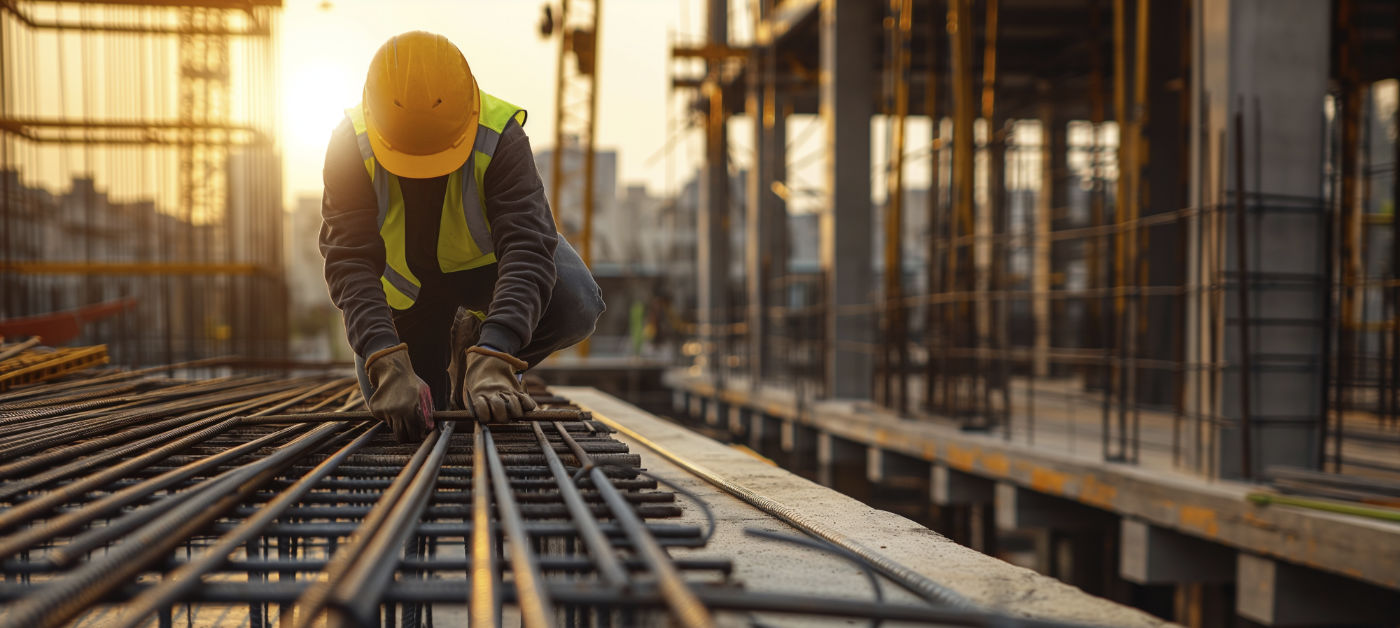
Saudi Arabia's accelerated push toward industrialization has transformed the nation into a global epicenter of construction activity, positioning it as the world's largest construction site and a key player in global infrastructure development. Spearheaded by its flagship giga-projects such as the NEOM smart city, Red Sea tourism projects and the capital’s King Abdullah Financial District, the construction sector is now Saudi Arabia’s second-largest contributor to the national economy in the non-oil segment, with an output value of $141.5 billion. According to UK-based real estate and consultancy company JLL, the nation now leads the world in construction projects with $1.5 trillion worth of unawarded construction projects as of Q1 2024. The industry is considered the driving force behind the Kingdom’s physical transformation under its Vision 2030 program, with local private sector champions rallying to foster job creation, embrace new innovations and promote sustainability. “The construction sector is undergoing a significant and positive transformation that is expected to continue for the next seven to 10 years,” said Rashid Saad Al-Rashid, chairman of Al-Rashid Trading and Contracting Company (RTCC), one of Saudi Arabia’s construction frontrunners. “Vision 2030 is not just a destination, but an ambitious and ongoing journey.”
-
read more...
“The construction sector is undergoing a significant and positive transformation that is expected to continue for the next seven to 10 years.”
Arch Rashid Saad Al-Rashid
Chairman of Al-Rashid Trading and Contracting CompanyParamount to building what is now considered the construction capital of the world has been a long-standing focus on building up technological capabilities. Local construction players are rapidly turning towards the following specific technologies: 3D printing, building information modeling software, the internet of things, artificial intelligence and robotics. By 2027, the local construction and smart city technology segment is expected to grow to a value of $14.8 billion. Entities like RTCC are relying on their strong network of local and global partners, including national oil and gas giant Saudi Aramco, to digitize its operations and help build an ultramodern construction ecosystem.
“These collaborations — spanning from natural gas projects to water and electrical substations — are not just about executing large-scale projects, they are avenues for technological and knowledge transfer,” said the company’s chairman. Other private sector leaders such as Khalid Ibrahim AlRawaf, CEO of AlRawaf Contracting Company, also point to cooperation on projects as the impetus for technological advancements: “Regarding emerging technologies, our information technology management team collaborates with companies on projects, thereby benefiting us as contractors in our various project capacities.”A second facet of Saudi Arabia’s construction boom is a concentration on sustainability and environmental conservation alongside the private sector’s shift towards transparency and good governance, including the use of green building materials and a shift towards green energy, water conservation and advanced waste management. Megaprojects such as the King Abdullah Financial District are now seeing sustainability as not only a factor in the construction of new infrastructure but also as a key attractor for further investment and international participation in completed assets. “Businesses are seeking environmentally responsible locations to make their operations more efficient and technologically advanced,” said Gautam Sashittal, CEO of King Abdullah Financial District Development and Management Company, the 2.7-square-mile real estate project’s coordinator. “Our commitment to sustainability and the environment is at the heart of KAFD.” Following the capital’s new financial district receiving the much-sought-after Leadership in Energy and Environmental Design (LEED) platinum environmental certification in January 2021, other local developers have quickly followed suit, with 1,161 certified LEED projects in the country as of Q3 2023. In June 2024, the Jameel Square project in Jeddah received Saudi Arabia’s first LEED gold certification for a commercial building.
Industry
Industrial Revolution 4.0: The Leap Toward a New Economy

Amid a transformative push toward economic diversification, Saudi Arabia's industrial landscape is witnessing a seismic shift in 2024 driven by a bold commitment towards localization and the Kingdom’s vision of reducing reliance on imports and boosting homegrown capabilities. The following economic milestones have been passed in 2023: the nation’s goal of having the non-oil sector contribute 50% of its real gross domestic product was surpassed, seven years ahead of schedule; annual non-oil revenue in Saudi Arabia reached a value of $655 million, representing a year-on-year growth of 3.8%; and investment in its industrial sector reached a cumulative $111 billion. In 2024, the Kingdom is expected to benefit greatly from its efforts, with its galvanized national champions poised to vastly increase market size, export potential and internal capabilities. “Saudi Arabia is currently looking to increase our number of factories under the Vision 2030 initiative. Our leadership realizes that the balance of trade will diminish greatly as oil imports recede, and we have a window of opportunity to bridge the gap in the next ten years.” said Mohanad Al-Shaikh, CEO of Johnson Control Arabia, the country’s leading manufacturer of heating, ventilation and air conditioning technology. “There are now around 11,000 factories in Saudi Arabia that have been launched since the Kingdom was established 93 years ago. Under the latest National Industrialization Strategy, we aim to increase this number to around 36,000 by 2035.”
“Saudi Industrial Development Fund has partnered with various funds and world companies to take advantage of new opportunities in technology.”
Mohanad Al-Shaikh
CEO of Johnson Controls Arabia
Since launch of the Vision 2030 initiative, the government has continuously launched satellite programs to support the private sector in increasing Saudi Arabia’s industrial output. A key pillar in Kingdom’s localization efforts is the National Industrial Development and Logistics (NIDLP) program, launched in early 2019 to advance the country’s following main sectors: energy, mining, logistics, minerals and industry, such as manufacturing. The initiative aims to increase production to meet 85% of local demand and localize 70% of the supply chain by 2030. Another key program is the Made in Saudi initiative launched in March 2021 by NIDLP that helps local producers to promote products under the Saudi Made brand both in the country and in international markets. Additionally, the government launched the Future Factories Program Initiative in 2022 to bolster production by fostering an ecosystem of 4,000 smart factories in the country. While these programs have laid the groundwork, the private sector is now utilizing these new incentives to advance Saudi Arabia’s industrial capacities to the next level.
-
read more...
“Government incentives cover 75% of mining costs and make it feasible for companies to invest.”
Suliman Saleh Alothaim
CEO of SGR CompanySuliman Saleh Alothaim, chairman of Saudi Gold Refinery Company points to specific investments in the country’s nascent mining industry as crucial for rapid expansion: “Government incentives cover 75% of mining costs and make it feasible for companies to invest. This support is crucial for attracting international investors and achieving the Vision 2030 initiative's goals.” Saudi Gold Refinery Company intends to become Saudi Arabia’s second largest mining company behind state-owned mining giant Ma’aden and increase Saudi Arabia’s competitive pool. Feras Bin Ghassab Al-Harbi, CEO of local water infrastructure powerhouse Saudi Arabian Amiantit Company also affirms the government’s strong support of private companies in the Kingdom: “Any challenges met by companies are met with proactive support from the government and regulatory bodies.” In May 2024, the private infrastructure development company signed six contracts worth $46 million for supply and installation of pipes for government-mandated infrastructure projects, with plans to use its international footprint and local research facility to become a critical player in modernizing the water sector in Saudi Arabia.
A key lynchpin in Saudi Arabia’s industrial development is heavy adoption of fourth industrial revolution (4IR) technologies and integrating advanced digital practices such as artificial intelligence, robotics and the internet of things across key sectors, including manufacturing and health sciences. “Saudi Industrial Development Fund – which is geared towards financing industry-based projects – has partnered with various funds and world companies to take advantage of new opportunities in technology,” said Al-Shaikh. In December 2023, the Centre for the Fourth Industrial Revolution or C4IR Saudi Arabia was officially launched in Riyadh to springboard implementation of 4IR across the nation’s manufacturing sector and increase local skillsets in cutting-edge innovations. In February 2024, Saudi Arabia launched Alat, a new state-backed national champion focused on technology manufacturing, including semiconductors, robotic systems, heavy machinery and devices for health sciences, that is expected to contribute $9.3 billion to the country’s non-oil gross domestic product by 2030, create employment for 39,000 workers and supply domestic and international markets. In May 2024, Alat announced plans to invest $100 billion by 2030 to develop smart manufacturing after launching two new business units in electrification and artificial intelligence.
“Our state-of-the art production lines are constantly being upgraded [...] and can produce any design requested by our clients.”
Walid Afyouni
CEO of Zoujaj GlassEstablished private sector players are now capitalizing on this local momentum to ramp up their digital capacities and outmatch the national agenda. “We aim to keep improving our technology to produce positive results and give comfort to our investors. We are on the right track,” said Walid Afyouni, CEO of National Company for Glass Industries, a local company that has revolutionized glass manufacturing in Saudi Arabia. “Our state-of-the art production lines are constantly being upgraded and maintained at the highest levels of quality and can produce any design requested by our clients.” Local producers in all sectors are embracing the 4IR transformation, including one of Saudi Arabia’s largest pharmaceuticals manufacturers. “We are also adopting the Pharma 4.0 operating model and integrating automation and artificial intelligence across the company,” said Jerome Cabannes, CEO of Saudi Pharmaceutical Industries & Medical Appliances Corporation. “Our localization efforts align with the country’s biotech strategy and the Vision 2030 initiative to create value for Saudi Arabia.”
Saudi Arabia is also ramping up efforts to bolster local talent and enhance domestic content in its workforce, with Saudi Arabia’s sovereign wealth fund Public Investment Fund targeting a 60% contribution to the Saudi economy through local content from its affiliates. NIDLP has set out to attain 30% local content rates in the pharmaceuticals industry and 20% in the defense and military industry by 2025 by stimulating the private sector. In July 2024, the government mandated companies to maintain a minimum 25% local content rates for engineering jobs, the latest in a slew of recent Saudization mandates including a set local content rate of 40% in consultancy positions.
Private sector entities are taking these initiatives one step further by actively engaging in upskilling programs for its current employees, future workers and their industries at large, such as Saudi Pharmaceutical Industries & Medical Appliances Corporation. “We established an academy to ensure our employees are continuously trained and retrained to achieve the status of employer of choice,” said the company’s CEO. “Our partnerships with universities help us transfer knowledge and increase the resilience of our ecosystem.” Other industry leaders such as Saudi Arabian Amiantit Company are utilizing internationalization as a key input for workforce advancement. “Growing deep technical knowledge has also been fundamental to our development,” said Al-Harbi. “Our training efforts are aided by our extensive international footprint […] to disseminate technologies.” According to the NIDLP, Saudi Arabian workers increased by 113,000 in 2023, including 51,000 female workers, due to the efforts of the country’s national champions.
Healthcare
Health care is going native
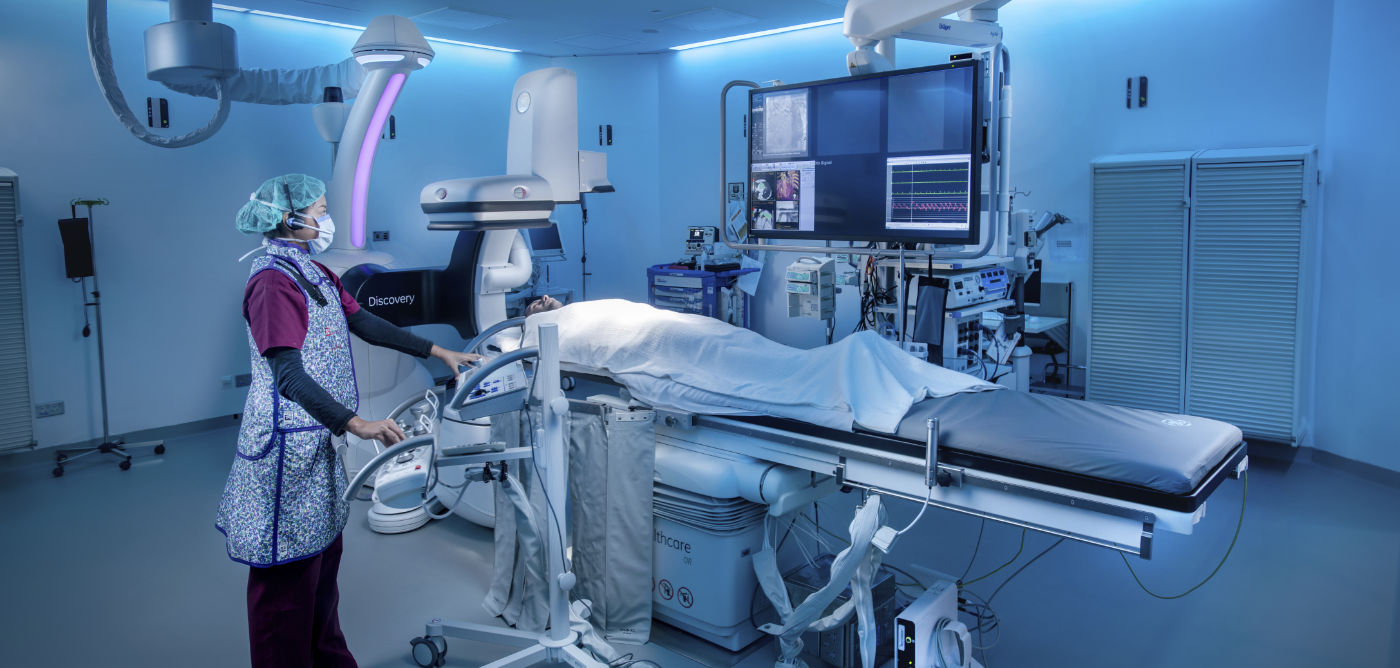
Saudi Arabia's healthcare sector is undergoing a rapid transformation, driven by ambitious investments and reforms that are reshaping the industry into a modern, world-class system poised to meet the growing needs of its population. Saudi Arabia has taken the lead in the Gulf Cooperation Council with the largest health services industry, contributing 60% of the region's total healthcare spending. In 2023, the Kingdom dedicated $50.4 billion to healthcare and social development, making up 17% of its annual government budget. “The local healthcare landscape is being influenced by our aging and growing population, which has increased demand,” said Jerome Cabannes, CEO of the Kingdom’s leading pharmaceuticals manufacturer Saudi Pharmaceutical Industries & Medical Appliances Corporation (SPIMACO). “We anticipate that the sector will grow by around 7-8% over the next five years, higher than the estimated 5%. However, we need more regulatory support to compete with international competitors who benefit from lower labor costs.”
“We believe technology enables business, especially in the services sector. To compete in the future, we must continue to invest in digitally enhancing our business processes, and our client and patient experiences,”
Faisal Al Nassar
CEO of Dr. Sulaiman HMG
The government is actively implementing its Health Sector Transformation Program as part of the Vision 2030 initiative. This program focuses on creating 21 diverse health clusters to close the healthcare gap between rural and urban areas, digitizing medical records for all citizens by 2025, expanding the number of internationally accredited hospitals and enhancing public-private partnerships. The plan also involves increasing private sector contributions to 65% by 2030. “The government’s desire for more privatization is opening many doors from a business perspective. With these changes, the quality of life of our citizens is rapidly improving; we are proud to be part of this journey,” said Faisal Al Nassar, president and CEO of top healthcare provider and hospital operator Dr. Sulaiman Al Habib Medical Group. “The Ministry of Health has recently split its payer, provider and regulatory functions. The delivery of care is now decentralized into clusters to enable better population health management and achieve the government’s quadruple aims for healthcare, which are improving population health, reducing cost, improving patient experience and empowering the healthcare workforce.”
-
read more...
The government and an energized public sector are prioritizing the use of the latest technologies to enhance services and boost operational efficiency. A key goal is to digitize 70% of patient activities by 2030, highlighted by the 2022 launch of Seha Virtual Hospital, the first virtual hospital in the Middle East. “We believe technology enables business, especially in the services sector. To compete in the future, we must continue to invest in digitally enhancing our business processes, and our client and patient experiences,” said the president and CEO of Dr. Sulaiman Al Habib Medical Group. The leading hospital chain has expanded to include a tech subsidiary that creates patented healthcare innovations and is now exploring the use of artificial intelligence (AI) in its operations. “Advancements in AI and radiology have been staggering,” said Al Nassar. “In that field alone, we have conducted more than 150,000 studies to date. This has led to the adoption of AI in neuroimaging, mammograms or breast imaging, chest x-rays and identifying bone age and bone fractures. It has positively increased diagnostic accuracy, time of reporting, patient satisfaction and physician productivity.”
Concurrently, the country is also actively modernizing its life sciences manufacturing sector, including pharmaceuticals, by incorporating new digital technologies. “As a leader in the KSA pharma industry, we are now bringing advanced manufacturing technologies into the country,” said the CEO of SPIMACO. “We are also adopting the Pharma 4.0 operating model and integrating automation and artificial intelligence across the company. Continuous improvement is an important element to our updated mindset.” The company has expanded substantially, becoming Saudi Arabia's only vertically integrated pharmaceuticals manufacturer and the largest in the Gulf Cooperation Council region. SPIMACO is also rapidly digitizing its operations, including incorporating robotics and AI. “Our operations at the plant are well equipped with fully automated parts coupled with data integration and are based on stringent quality systems,” said Cabannes. “Quality is a crucial element to the pharmaceutical industry as it is not simply a business but directly impacts patient health.” The leader points to keeping up with new innovations as crucial for the company’s success in the competitive local market: “Based on its history, SPIMACO is well-regarded within the Kingdom and will continue to be a key player going forward. Our current focus is advancing rapidly and staying ahead of the curve.”


